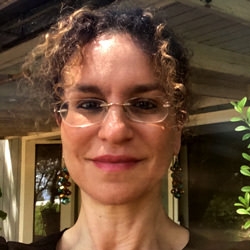
Search Results: meaning
-
Feelings and Needs form the cornerstone of Nonviolent Communication (NVC), offering a profound framework for cultivating empathy, compassion, and authenticity in our interactions. This comprehensive 9-page Feelings and Needs Reference Guide is designed to support you in integrating these vital concepts into your daily life.
-
Come fall in love with yourself again…
In this course recording, facilitated by Arnina Kashtan, you will discover your ability to...
- Simply love yourself…
- Live fully and express your greatness in the world… and
- Shorten the way to realizing your true self!
Arnina will share with you the deepest process of self-connection and meaningful discovery. You will learn how to listen to your innermost self, discover how to lead a life that is much more than anything you have ever dreamed of, and fall in love with yourself all over again!
-
- Discover how mediation is a fundamental social skill that everyone can learn
- Gain the skills to stay centered when a conflict becomes heated
- Learn how to lead a dialogue toward sustainable agreements
- Help facilitate connection and creativity to discover and meet everyone’s needs
-
We’re in the throws of a particularly worrisome presidential election in the USA. Combined with world affairs and the global warming of our earth, we are seeing a level of despair higher than I ever remember experiencing.
As a result, the level of blaming others, judgments, dis-ease, and lack of trust that I experience or hear about every day is at an all-time high. I think there’s so much fear that we’ve begun lashing out at others, and rage is either visible or ever lurking.
-
- Gain a deeper insight into the spiritual practice of NVC as taught by Robert Gonzales
- Enhance your emotional intelligence and self-compassion
- Learn compassionate self-talk techniques and cultivate more inner peace
- Approach change with a peaceful mindset, rather than anxiety and fear
-
- Uncover the expansive possibilities of Nonviolent Communication in growing compassion for a more empathic world
- Engage with 17 global trainers on 17+ unique topics
- Connect with an international audience from novices to experts
- Immerse yourself in a festival of learning, fun, and community
-
Jim and Jori Manske share the wisdom of Marshall Rosenberg, the founder of Nonviolent Communication (NVC). Join them to learn why knowing what you want before speaking is essential for clear, meaningful interactions. This snippet from their eight session course, 9 Skills for Navigating Conflict, explores how to make "confirmation requests" to ensure you're understood—whether you're navigating a tough conversation or simply ordering pizza!
-
CNVC Certified Trainer, Yoram Mosenzon has a vision… he sees mediation as a basic life skill that could be taught in schools starting at the age of three. He dreams of a world where all human beings have mediation skills to support understanding, cooperation, and connection when conflicts arise.
-
- Understand the destructive dynamics that keep love from blossoming
- Learn how to deal with expectations, disappointments, and judgment
- Transform guilt, shame, and obligations into a flow of creativity
- Find out what tiny details are preventing natural love to flow!v
-
CNVC trainer Yoram Mosenzon shares how expressing specific and authentic appreciation can deepen connection in intimate relationships. He emphasizes the importance of making clear observations without judgment and connecting with the feelings and needs that arise from meaningful gestures.
-
As social beings we thrive with social contact and community. Thus, with the social isolation and a loss of routine that is happening in the COVD-19 pandemic, there are three critical areas to keep in mind everyday: emotional-physiological regulation, self-empathy for fear and anxiety, and meaningful engagement.
-
-
Kristin Masters explores how to approach goal-setting and self-reflection with compassion and mindfulness grounded in NVC principles. She encourages you to examine how conscious choice plays a role in how we treat ourselves and others.
-
In this moving reflection, Rachelle Lamb honors Marshall Rosenberg’s true vision for Nonviolent Communication—not just as a tool for personal transformation, but as a catalyst for deep social change. She reminds us that inner work alone is not enough in a world facing ecological collapse, rising suicide rates, and widespread displacement.
-
Ask the Trainer: "A participant in our beginners' NVC practice group asked the co-facilitators if there was a confidentiality agreement that was typically used in NVC practice groups?"
-
How can we express ourselves in a way that supports a natural flow of connection while maintaining a focus on NVC consciousness? This handout from CNVC Certified Trainer, Miki Kashtan, offers seven options that support NVC enthusiasts in evolving from classical to colloquial NVC language.
-
Most of us believe we are powerless at work – even if we’re the one “in charge.” This course offers you the opportunity to learn how to consciously change this mindset, and have a positive impact on workplace culture and attitudes along the way. Most of us believe we are powerless at work – even if we’re the one “in charge.” This course offers you the opportunity to learn how to consciously change this mindset, and have a positive impact on workplace culture and attitudes along the way.
-
The heart of the practice of nonviolence is a commitment to live through the powerful combination of compassion, fierceness, and courage, with an uncompromising willingness to stand for truth. Join Miki Kashtan for this exciting and informative course to learn how to practically embrace nonviolence.
-
Join Aya Caspi, a Certified NVC Trainer, as she delves into the difficult topic of parenting, childhood trauma, and social status. She discusses the generational impact of being labeled by society as "less than" or subservient. The wounds of childhood trauma can be healed so they no longer are a means of control by a dominant culture.
-
Most people want to punish perpetrators of sexual violence. Unfortunately, punishment doesn’t lead to lasting widespread change. Rather, we can identify root causes and conditions that sustain violence. That means shifting from individual to systemic lenses, and from punitive to restorative responses. It means collective learning about how such acts are nurtured and persist. This can reduce the chance of it happening again.
















